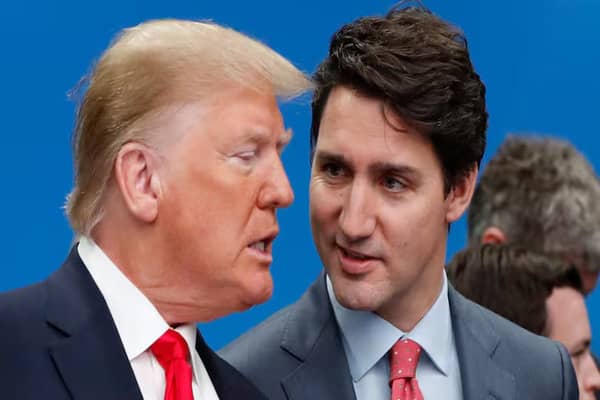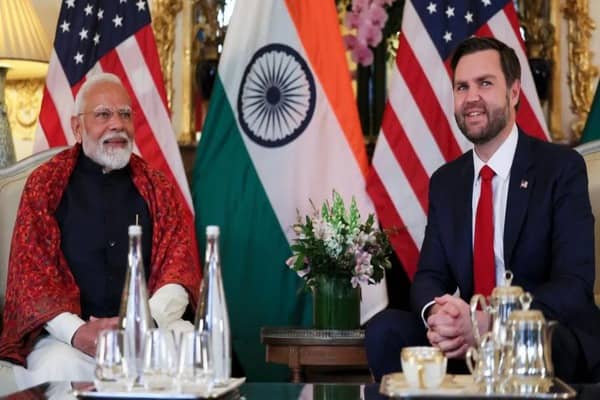President-elect Donald Trump has once again voiced his apparent desire to see Canada become the 51st state of the United States, sharing a social media post supporting the idea from Canadian entrepreneur Kevin O’Leary. While his remarks have been met with mockery, the persistent nature of this rhetoric is concerning, especially at a time when Canada’s Liberal government is in disarray following the unexpected resignation of Chrystia Freeland as finance minister and deputy prime minister.
In her resignation letter, Freeland highlighted Canada’s lack of preparedness for the challenges posed by Trump’s second term. She repeatedly criticized Prime Minister Justin Trudeau’s handling of the country’s response to Trump. Almost immediately after her resignation, Trump weighed in on Canada’s internal affairs, calling Freeland “toxic” and mocking Trudeau by referring to him as the “governor” of an American state rather than the leader of a sovereign nation. Trump’s comments have become routine, with suggestions that Canadians would “save massively on taxes and military protection” as part of the 51st state.
Whoever becomes Canada’s next prime minister will face the daunting task of addressing Trump’s ongoing threat to Canadian sovereignty more effectively than the Trudeau government has done. Trump’s repeated disrespect for Canada’s independence, coupled with his dismissal of Canadian identity, challenges the very notion of Canadian sovereignty. The proposed 25% tariffs on Canadian exports to the US would have a severe impact on both economies, but with the larger burden falling on Canada, given the size disparity between the two nations. The threat to Canadian democracy is also undeniable. Trump has already launched a revenge campaign against media outlets and pollsters who opposed him, promising to use public institutions to punish political opponents.
Experts have long warned about the risks of Trump’s influence in encouraging democratic backsliding worldwide. His behavior suggests that challenging democratic norms is acceptable, setting a dangerous precedent for other potential authoritarian leaders. His interference in Canadian politics has already raised alarms, and his apparent belief that Canada is powerless to resist his demands only reinforces this view. Trump’s recurring comments about Canada not being a “real country” but merely another state in the US cannot be dismissed as harmless banter. Canada’s response thus far has been inadequate, appearing weak in the face of such threats. Instead of pushing back on Trump’s challenges to Canada’s sovereignty, the government has prioritized more than $1 billion in new border security spending, signaling submission rather than resistance.
When Trump’s tariff threats were raised, Trudeau made an unexpected trip to Florida to meet with Trump rather than following the normal protocol of waiting for a formal post-inauguration visit. This gave the impression that Trudeau was groveling rather than asserting Canada’s interests. Trump’s tactics resemble those of a schoolyard bully demanding that someone else do his homework—in this case, defend America’s borders. This dynamic illustrates how the balance of power has tilted in favor of American dominance, especially given Canada’s reliance on the US for trade and military security. The deep economic integration between the two nations means that actions like cutting off power or petroleum exports could significantly harm the US economy. As Ontario Premier Doug Ford has suggested, such moves could have immediate and damaging effects.
The US consumes vast quantities of Canadian oil, and imposing a tax on this resource would likely lead to inflation and be unpopular with American voters. Other nations, too, should be concerned about the precedent set by Trump’s disregard for Canadian sovereignty. If he can treat Canada this way, no nation is truly safe from similar treatment. Countries like Panama and Denmark have already experienced this firsthand. Canada must find ways to push back against such demands and work with international allies to defend sovereignty. Trump will soon return to the White House, but he should not be allowed to dictate terms to Canada. The next leader of Canada must be prepared to stand firm in defending the country’s sovereignty, using all available tools to resist external pressures and safeguard its independence.



